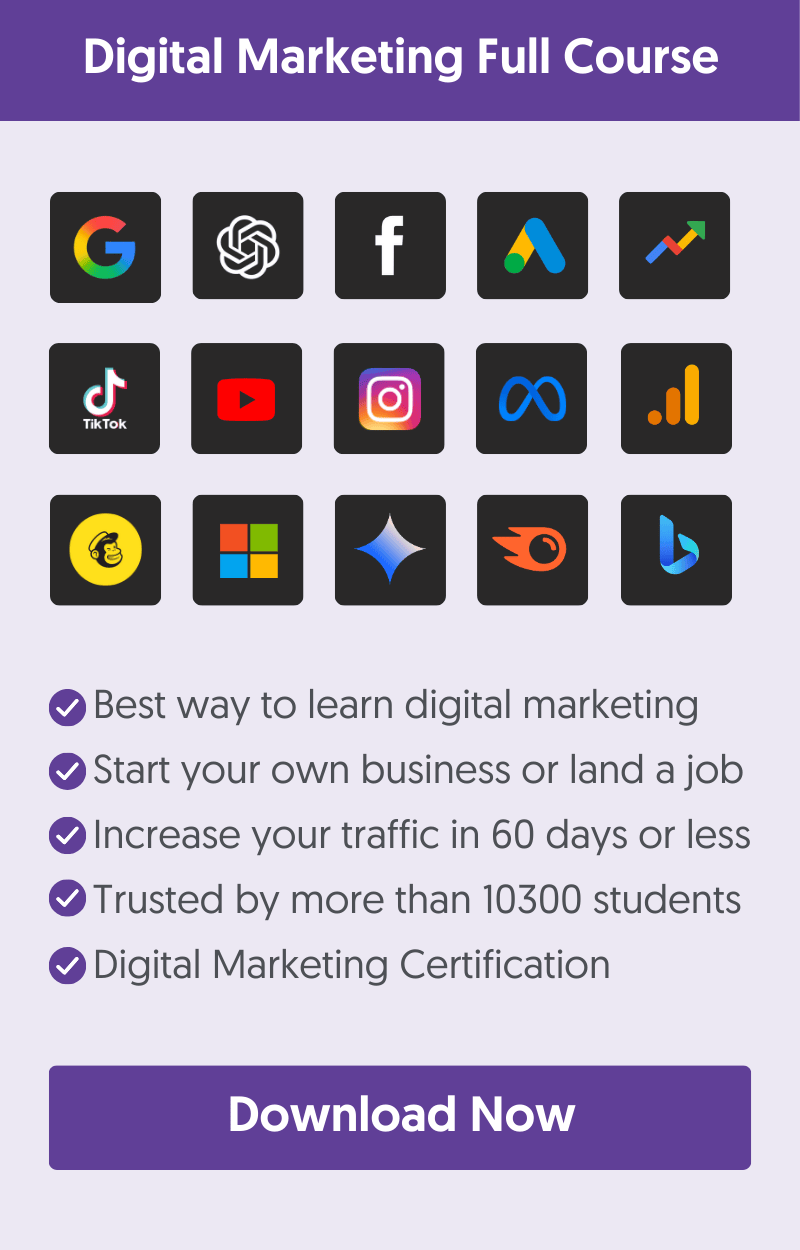Blogging is one of the most effective ways to improve your website’s SEO. But simply having a blog isn’t enough, you need a strategy to make it work.
In this guide, you’ll learn how blogs help SEO and how to use blogging to boost your rankings.
How Do Blogs Help SEO?
Blogs can help you rank for more keywords, earn backlinks, and establish authority in your industry. They're also a great method for keeping your website's content fresh and building topical authority on topics that matter to your business.
1. You Can Rank For More Keywords
Blogging allows you to rank for keywords you cannot target with your landing pages.
Let’s assume you have a website (like this one) selling online SEO Courses and digital marketing services.
You already have optimized landing pages for each service and a homepage for your main keywords.
That’s great, but your organic traffic will be low. Why? Because hundreds of websites (bigger and more authoritative than yours) are already ranking for those keywords.
You can try to get some backlinks to improve your positions, but soon enough, you’ll realize it’s too difficult to get other webmasters to link to your service pages organically.
What should you do? That’s where blogging comes to the rescue.
You can start a blog, perform keyword research to find out what other search terms people use for your products and services, and start publishing content.
Depending on your chosen SEO keywords, you can use different techniques to get high rankings.
You can either target long-tail keywords that are easier to rank for or target more popular keywords by publishing long-form content and creating topic clusters.
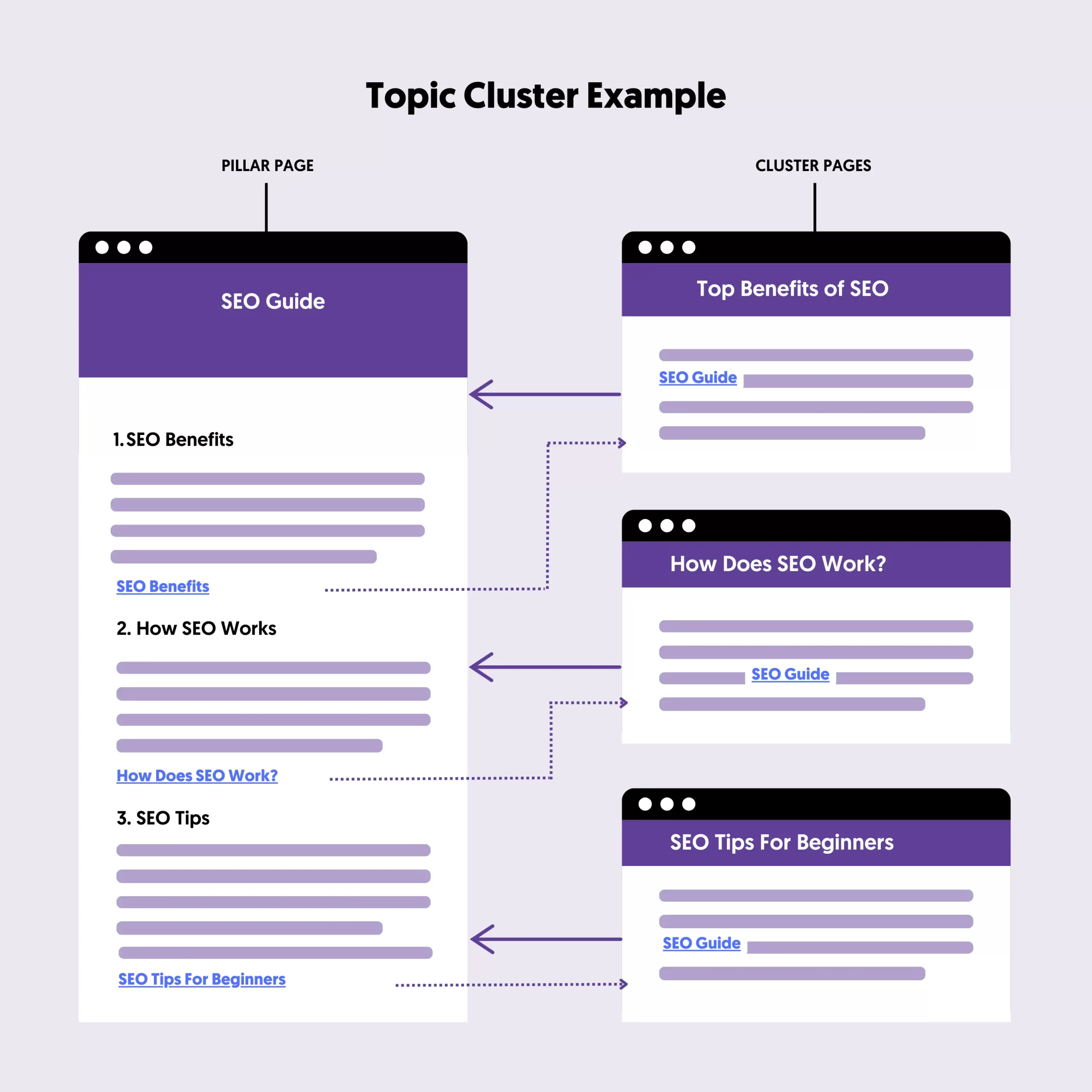
2. You Can Get More Links
For a website to rank high on Google, it needs high-quality backlinks. Blogging is a great way to get those links and increase the authority of your domain.
Other bloggers are likelier to link to a good blog post than a product or service page.
These links may not have a direct effect on your rankings, but they will strengthen your domain, which will benefit all pages on your website.
3. It's Good For Brand Mentions
Inbound links are not the only way to convince Google that your website deserves good treatment in search. One of the most neglected off-page SEO techniques is brand mentions.
Google loves brands, and blogging can help you position your brand in front of more eyes. This can lead to social media engagement (likes, comments, tweets) and mentions of your brand in places that would be impossible without blogging.
4. It's a Great Opportunity to Demonstrate Your Expertise and Experience (EEAT)
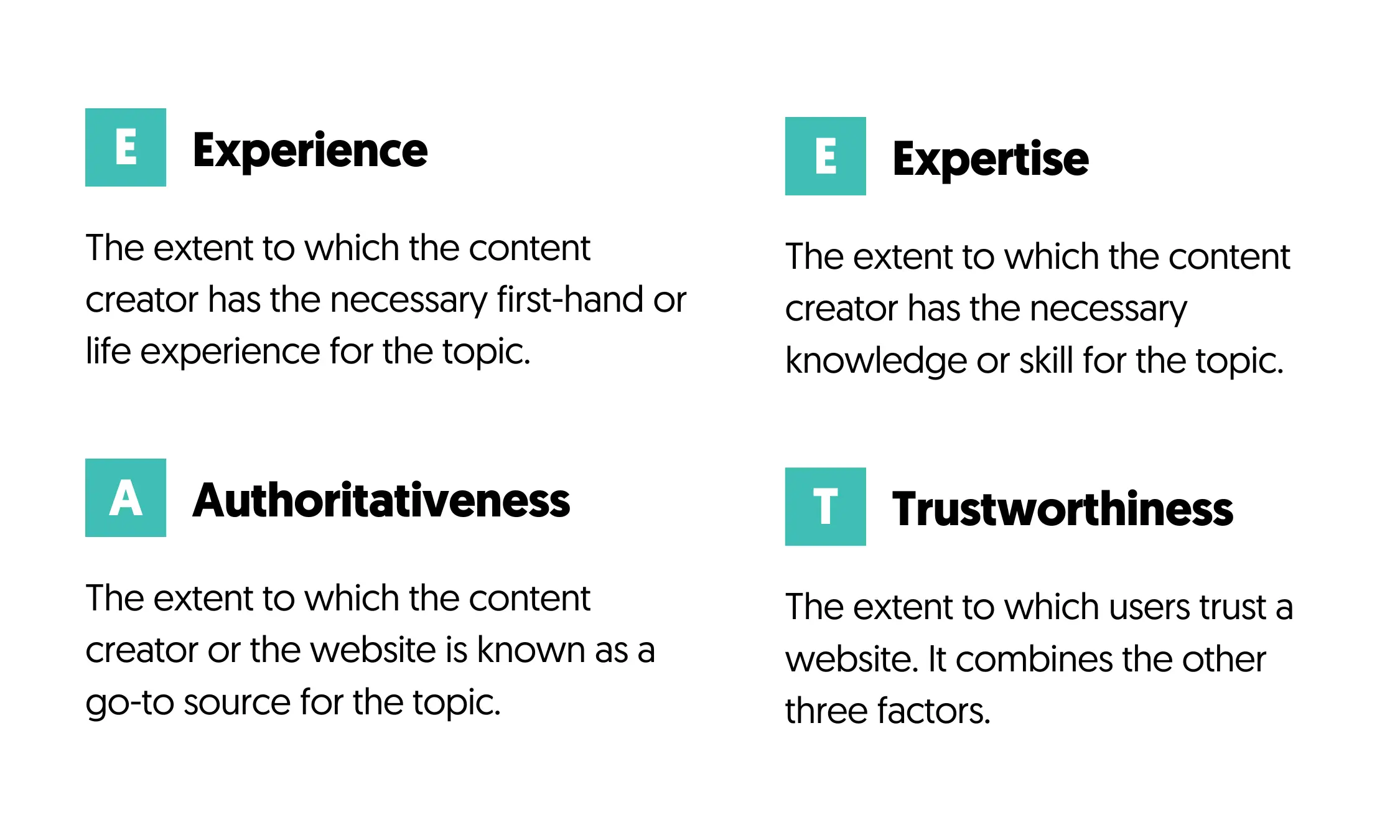
One factor that Google considers when assessing a website's value is Expertise, Experience, Authority, and Trustworthiness (EEAT).
If you maintain an active blog, you can show your visitors (and the World) that you are an expert (E) on your chosen topics through your experience (E).
If this is packed with incoming links and brand mentions, you also win the A part (Authority), gradually leading to Google Trust (Trustworthiness).
When you have secured all EEAT factors, your SEO will be boosted, and your rankings will improve.
5. Keeps Your Website Fresh and Updated
Blogging helps keep your site active, signaling to Google that your website is relevant. It also gives crawlers and users reasons to return and consume more content.
6. Increases Internal Linking Opportunities
Blogs allow you to create strategic internal links, helping users navigate your site and distributing link equity to important pages.
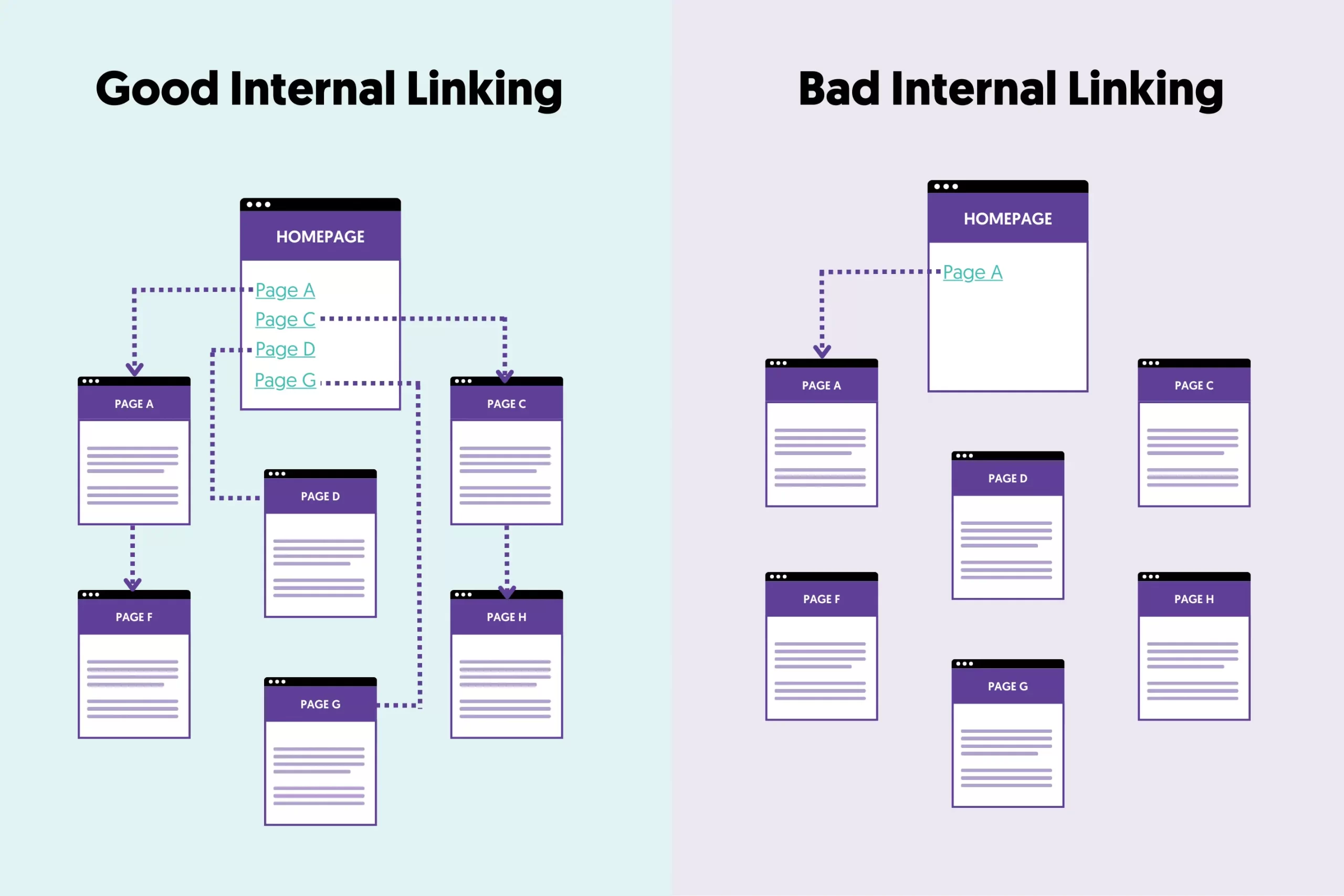
How to Use Blogging To Improve Your SEO
Now that we've seen the advantages of blogging for SEO, let's see how to do it correctly. Creating a blog and publishing random blog posts will not help.
1. Avoid Keyword Cannibalization: Target Unique Keywords
One of the biggest mistakes bloggers make is targeting the same keywords as their main landing pages. This can lead to keyword cannibalization, where multiple pages compete for the same search terms, confusing search engines and hurting your rankings.
Instead, conduct keyword research to find related but distinct keywords. Focus on long-tail keywords, question-based searches, and semantic variations of your primary terms.
For example, if your main page targets “email marketing software,” your blog posts could cover topics like “best email marketing strategies” or “how to write engaging email subject lines.”
By targeting unique keywords, you expand your reach and increase your chances of ranking for a broader range of search queries.
2. Write for Every Stage of the Buyer's Journey
The beauty of having a blog is that you can use it to capture users at different stages of their buying journey.
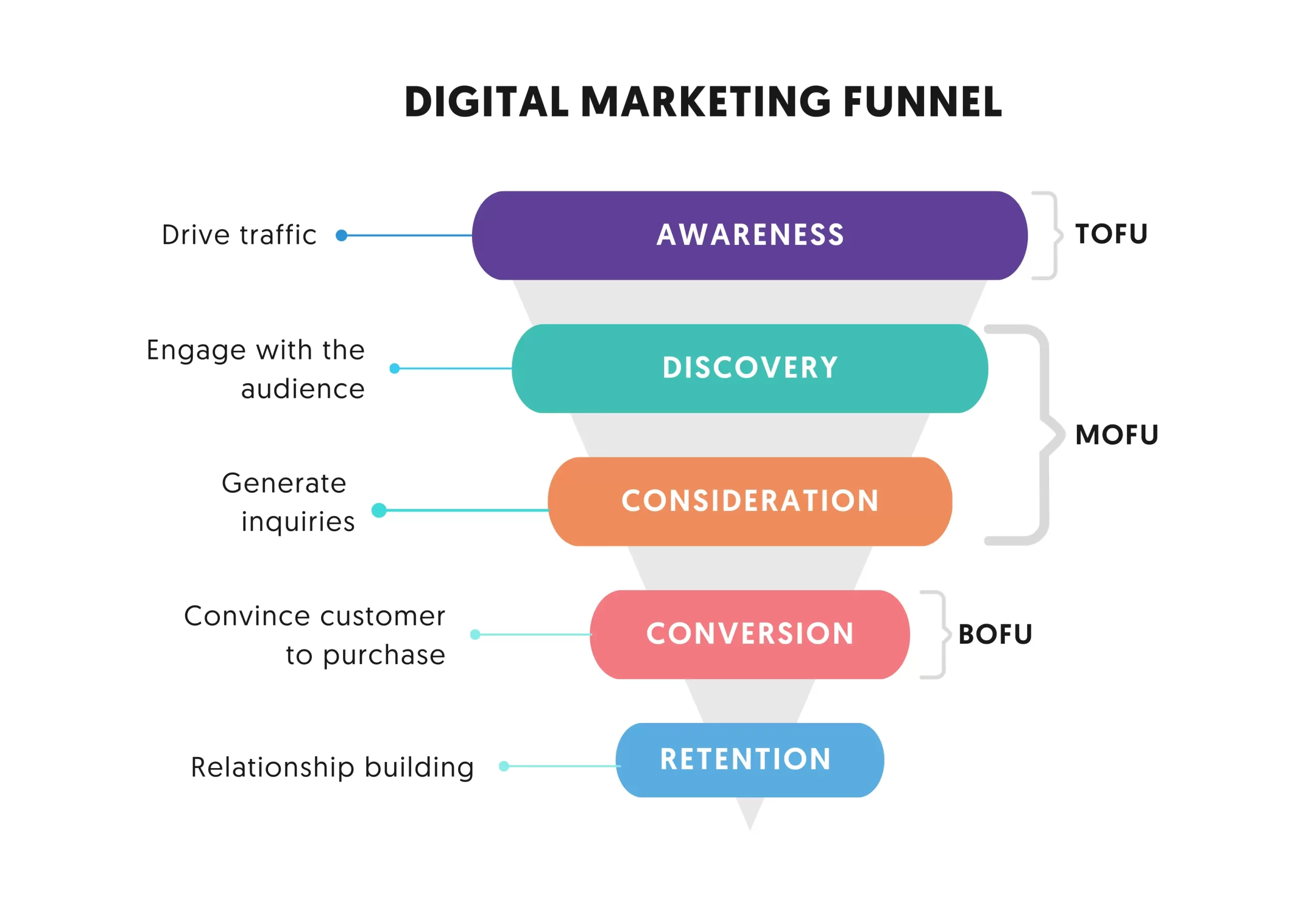
For example, if you run a website selling snorkeling cruises, don’t just blog about snorkeling. Expand your reach by targeting users searching for broader topics related to your location or industry.
Let’s say your business is in Florida. Instead of only writing about “best snorkeling tours in Florida,” you can create content around “Fun things to do in Florida” and naturally mention snorkeling as an option. This way, you attract potential customers even before they realize they want a snorkeling tour.
By consistently covering related topics, you increase your visibility, build trust with your audience, and create a natural path leading users to your services. This approach has worked for many successful websites and can help you grow your traffic and conversions over time.
3. Craft Click-Worthy, SEO-Optimized Titles
A well-optimized title can be the difference between a post that ranks and one that gets ignored. A good title can improve your click-through rate (CTR), boost rankings, and attract the right audience. Here are some tips for writing your blog post titles:
- Include Your Target Keyword – Ensure your primary keyword appears naturally in the title for better SEO.
- Make It Engaging - Use powerful words, numbers, or questions to grab attention (e.g., "10 Proven Ways to Boost Your SEO Fast").
- Keep It Concise – Aim for 50-60 characters so it doesn’t get cut off in search results.
- Match Search Intent – Your title should clearly indicate what the post is about and align with what users are searching for.
- Test Different Formats – Try using brackets, parentheses, or emotional triggers e.g., "How to Write SEO Titles (That Actually Rank)".
4. Create an SEO Action Plan
Avoid publishing content without a purpose. Do some preparation work in advance and decide what you will blog about, which keywords to target, how to promote each post, and how to measure the effectiveness of your blogging.
All of these items should be part of a well-defined SEO action plan. A clear strategy and step-by-step plan in advance makes the whole process much easier and more efficient.
5. Optimize Your Blog Posts for SEO Before Publishing
After you write a blog post, don’t hit the publish button if it’s not optimized for SEO.
Learning how to write SEO-friendly blog posts is not hard. You must follow some basic SEO rules to make your articles easy for search engines to understand.
6. Promote Your Blog Posts to Maximize Reach and Rankings
Ideally, after publishing a blog post, you should spend enough time promoting it and try to get some backlinks to increase your rankings. That’s how SEO works.
In reality, not many people do this. The majority of people hit the publish button and wait for the magic to happen, or they just move on to the next blog post.
Following the same approach minimizes your chances of getting a return on your blogging efforts (in terms of rankings and website visits).
What you should do as a minimum is publish the blog post on Facebook and use Facebook Ads (Boost Post) to get it in front of people who might be interested in reading it.
Facebook allows you to select your target audience based on interests and demographics. You can use this to narrow down your audience so that your ads reach the right people with the minimum amount of effort.
If you want to do this properly, besides promoting on Facebook, you should create a list of bloggers who blog about similar topics and already link to similar articles, email them, try to engage in a conversation with them, and ask them for a link.
7. Track and Measure Blogging’s Impact on Your SEO
One reason many people believe that blogging does not help SEO is that they don’t measure the effectiveness of blogging on SEO correctly.
You may have read articles claiming that there are too many blog posts on the Internet and that publishing another post will not get you any traffic, but they are simply wrong.
Blogging does work for SEO, and that's the case for our website and clients. If you search closely, you will see that many people/businesses use the same techniques, and it works for them, too.
Looking at your overall organic traffic is not the way to measure how your blog is helping your website.
The reason is that your traffic fluctuates within a given period because of Google algorithmic changes and seasonality (the search volume of a keyword varies per month).
So, just looking at the total organic traffic per month will not accurately show whether your blog posts generate traffic to your website.
You should look at Google Search Console reports and filter traffic by page (in this case, blog posts) to see how much traffic they generate. For even more meaningful results, you should use Google Analytics to track how many conversions were generated by blog posts.
Key Learnings
Blogging is a great SEO tool. By regularly publishing high-quality targeted posts, you can gain many benefits beyond SEO.
It’s a great way to engage with your users, keep your content fresh and give search engines more reasons to visit your website more often.
In terms of SEO, blogging can help you increase your visibility in search engines by expanding your keyword research. It can also help you with link building and brand mentions, factors that can positively affect your organic rankings.
When starting to blog, make sure you do it based on a plan, optimize your blog posts for SEO, promote them properly, and learn how to measure their performance correctly.
If you still have doubts about whether this still works, give it a try for at least six months and see what kind of results you can get. If you do things correctly, you’ll be surprised by the outcome.
